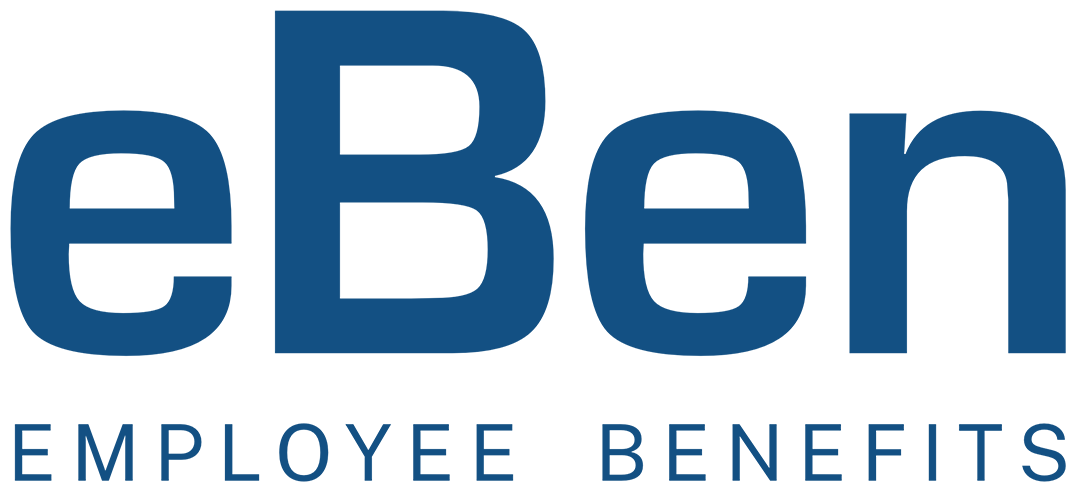ACA compliance can be daunting for large employers, with stringent regulations and hefty penalties looming over non-compliance. Understanding the four fundamental pillars of compliance is crucial to mitigating risks and ensuring adherence to regulatory requirements. From offering minimum essential coverage (MEC) to providing Marketplace notices and annual ACA reporting, eBen can help guide employers through these complexities. As the Biden Administration intensifies enforcement efforts and excuses for non-compliance diminish, these proactive measures are imperative.
| 1 | Large Employers who average 50 or more FTEs during a calendar year (”ALE”) are required to offer minimum essential coverage (MEC) by the beginning of the next calendar year to all eligible full-time employees, or face a penalty of $229.16 for each employee working 130 or more hours per month (total FT EE count minus 30) during 2022. The penalty rises to $240 for 2023. (IRC § 4980H(a)) |
|---|---|
| 2 | Those ALEs who do not offer coverage that is both affordable and meets the minimum value standard must pay a penalty of $343.33 per month during 2022 (2023: $360) for each month an eligible employee is enrolled in subsidized health insurance through the federal Health Care Marketplace or state exchange. (IRC § 4980H(b)) |
| 3 | ALEs must provide Marketplace notice to all eligible employees, at least annually, that provides information about whether health plans offered by the employer are affordable and satisfy the minimum value standard discussed above. Failure to provide such notice may subject the employer to ERISA penalties of $119-$159 per employee per day. (USDOL Technical Release 2013-02) |
| 4 | Applicable Large Employers are required to provide a 1095-C annually to each full-time employee and transmit those forms along with a 1094-C to IRS no later than March 31. Failure to send these forms is subject to a penalty of $280-$570 per form for 2022. (Example: 100 employee group would pay a penalty of at least $56,280) (IRC § 6056) |
Our Benefit Compliance Team works with employers who have been given inaccurate information about ACA Compliance, to resolve IRS and DOL penalty letters—so far, saving over $4 million in penalties for the 2015-2018 filing periods.
Given the Biden Administration’s efforts to strictly enforce these rules and the end of “good faith” excuses in 2022, employers must do the hard work now to minimize exposure for penalties due to bad advice you might have received from misinformed salespeople. Give us a call today!
How eBen Helps Employers Avoid ACA Penalties:
Assess Penalty Exposure
 Given the complex number of obligations, our compliance team is hands-on, performing the analysis of current practices and payroll data and comparing them to current law to help those responsible make strategic decisions by better understanding the cost of different solutions — including the difference between not offering coverage vs. being sure to offer coverage only to eligible employees.
Given the complex number of obligations, our compliance team is hands-on, performing the analysis of current practices and payroll data and comparing them to current law to help those responsible make strategic decisions by better understanding the cost of different solutions — including the difference between not offering coverage vs. being sure to offer coverage only to eligible employees.
Manage Eligibility
We work with clients of all sizes to adopt clear counting policies that are designed to create a transparent process of who is eligible (and not eligible) to enroll. This also strengthens the employer’s position if challenged by IRS or DOL about why an offer was not made. We actively partner with a number of our clients in doing per-pay period eligibility analysis for non-fulltime employee offers.
Find The Right Strategy
The key to finding the right answer may be purely cost-benefit analysis, but involves complex approaches related to plan design, the process to document both offers and waivers, the risk management options for financing health care, understanding the markets available, and listening to each employer’s long-term objectives. That solution may be one of our LEAP plans (using traditional or reference-based networks) or other self-funded markets to find what works. Remember the Mandate is to offer coverage, not that they enroll.
ACA Reporting
Helping employers and plan sponsors avoid reporting penalties and fines is a given. Our team of well-versed experts works closely with our clients, providing a roadmap with required client actions to ensure compliance with new or changing government regulations (at the federal, state, and local levels). Serving as financial risk consultants and trusted business advisors, we operate as an extension of the client’s benefits and leadership team using a combination of technology and human expertise to collect and organize the necessary information.
This includes data on the number of employees, their hours worked, and any offers of health insurance that were made. Our team then conducts a thorough review to ensure its accuracy and compliance with the ACA and submits the ACA report to the government on their behalf.
IRS Communication
 eBen’s experienced benefits professionals provide advice and assistance on a range of IRS-related topics such as reporting requirements and compliance with tax laws. We understand the importance of supporting our clients proactively with any communication or questions that may arise with the IRS. Our in-house experts monitor and provide timely updates related to annual reporting requirements.
eBen’s experienced benefits professionals provide advice and assistance on a range of IRS-related topics such as reporting requirements and compliance with tax laws. We understand the importance of supporting our clients proactively with any communication or questions that may arise with the IRS. Our in-house experts monitor and provide timely updates related to annual reporting requirements.
Indemnification
We stand by our advice. Our indemnification protection is exclusive to eBen and not offered by any of our competitors. When we give you guidance, and you follow it, we hold our clients harmless and indemnify them against potential litigation or regulatory fines or penalties. Every client has peace of mind knowing they are protected from potential financial liabilities.
Our Approach
Our approach — understanding the law, being honest with employers about their obligations, being proactive on solutions, and working with regulators to solve problems has been highly effective in not only helping our clients avoid ACA penalties but in building the trust that is paramount in maintaining a strong and successful working relationship. To learn more about how eBen can help, contact us today!


